Statehood for Territories May Boomerang on Democrats By Michael Barone
What happens if, as seems much more likely now than it did a year or six months ago, Democrats overturn the Republican majority in the Senate?

What happens if, as seems much more likely now than it did a year or six months ago, Democrats overturn the Republican majority in the Senate?

Having presided over the recognition of Israel by the United Arab Emirates and Bahrain, President Donald Trump has been nominated for a Nobel Peace Prize amid talk of peace breaking out across the region.
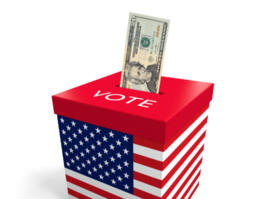
Democrats and Republicans are a lot more eager to get involved financially and otherwise in politics this year.

Most voters believe there is a war on police in America today and want to make attacks on cops punishable as a hate crime. Blacks worry most that these attacks will make their communities less safe.

— The Trial-Heat and Convention Bump Forecasting Models have an excellent record for accurate predictions of the presidential elections going back to 1992.
— Forecasting models depend on applying electoral history to the current election, but 2020 is historically abnormal (at least, in the period since 1948).
— The greatest challenge for forecasting this year is in how the catastrophic second quarter GDP should be treated.
— Based on President Trump’s approval ratings, in general and on the economy, as well as the projected third quarter GDP growth rates, the forecasts should depend exclusively on the preference polls, and they point to another extremely close election.
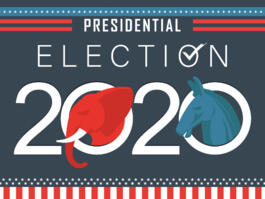
President Trump has now edged to a one-point lead over Democratic nominee Joe Biden in the latest Rasmussen Reports’ weekly White House Watch survey. While statistically insignificant, it’s the first time Trump has been ahead.
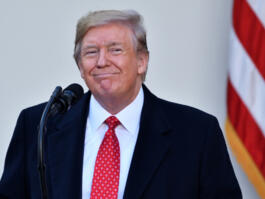
Voters now give President Trump the highest marks of his presidency when it comes to his handling of the economy and national security. He's doing better than President Obama was going into the 2012 election.

Politicians shut down businesses because of COVID-19.
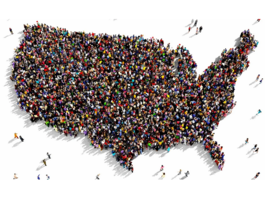
The Rasmussen Reports Immigration Index for the week of September 6-10, 2020 fell to 101.4 from 103.0 the week before.

Three-out-of-four voters who’ve had violent anti-police protests in their community rate those protests important to their vote in the presidential election. Among these voters, a sizable majority like the job President Trump is doing.

Good news: The anti-mask mandate movement is gaining steam. Americans yearning to breathe free are waking up from their pandemic stupor. Common sense and constitutional principles, now more than ever, are vital to a sovereign nation's health.

Joe Biden just can't get his story straight on his green energy promises.
In Pittsburgh, in front of union workers last month, he declared: "I am not banning fracking. Let me say that again. I am not banning fracking. No matter how many times Donald Trump lies about me."

"There is no... sound reason for the United States to continue sacrificing precious lives and treasure in a conflict not directly connected to our safety or other vital national interests."

Thirty percent (30%) of Likely U.S. Voters think the country is heading in the right direction, according to a new Rasmussen Reports national telephone and online survey for the week ending September 10, 2020.

Voters think the media is a lot more interested in selling you Joe Biden’s positions than it is in letting you know where President Trump stands on the issues. Controversy’s the key when it comes to media coverage of Trump.

In surveys last week, this is what America told Rasmussen Reports...
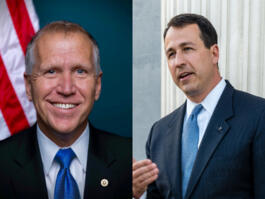
Incumbent Republican Thom Tillis is trailing Democratic challenger Cal Cunningham by three points in North Carolina’s U.S. Senate race.

Economic confidence jumped to 118.3 in this month’s Rasmussen Reports Economic Index, up eight points from August and the highest finding since March when states started locking down due to the global coronavirus pandemic.

President Trump holds a narrow lead over Democratic nominee Joe Biden in the battleground state of North Carolina.

The presidential campaign is at knife's edge. Both parties' campaigns assume that patterns of support will closely resemble those in 2016. And both are making surprisingly little effort, considering how close that contest turned out to be, with the 46 crucial electoral votes decided by just 77,744 votes, to increase their levels of support.